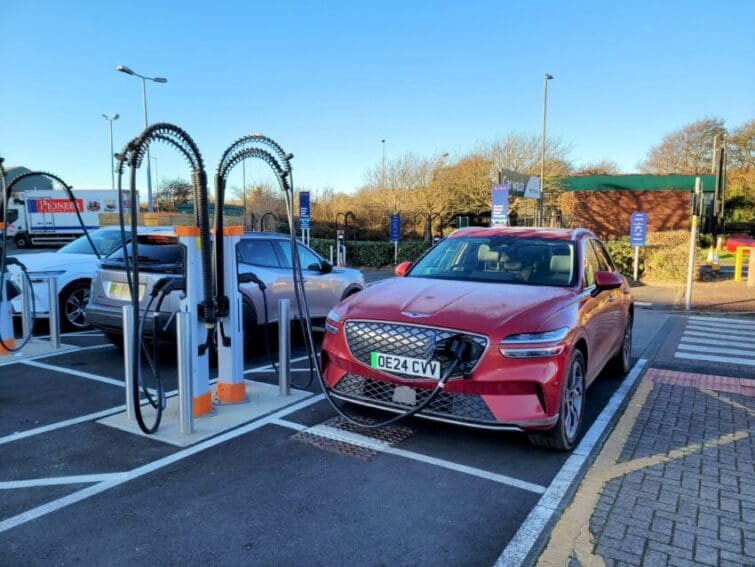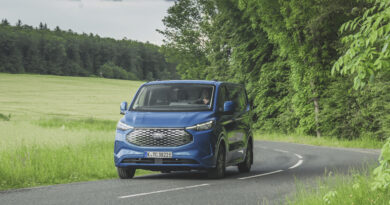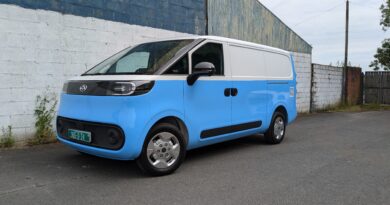Long-term review: Genesis Electrified GV70 month 3
More time with our long-termer and rival brands reveals the Genesis Electrified GV70’s strengths and weaknesses
I’m in the very fortunate position to have two EVs from premium brands on my driveway at the minute.
Along with our Genesis Electrified GV70 long-termer, I have my company car – a Mercedes-Benz EQA. And while they’re competing in slightly different segments, they provide an interesting comparison between an established premium brand and the young upstart looking to steal its customers.
The previous MD of Genesis told me they weren’t trying to pinch customers from the likes of Mercedes, Audi and BMW. But any brand positioning itself as a premium manufacturer in Europe has to accept that everyone will compare its product to the German ‘big three’.
On the whole, the Electrified GV70 holds up impressively well. This isn’t just a mainstream brand playing at being upmarket (which is how the Genesis name started out), it’s a properly thought-out package that blends the sophistication, quality and comfort you want for the fat end of £70,000.
On the road, it’s every bit as quiet and smooth as anything from Stuttgart, Munich or Ingolstadt. The GV70’s laminated glass and active noise cancelling keep the cabin serenely quiet even as the winter weather batters the car. And the adaptive air suspension uses a forward-facing camera to prime itself for changes in the surface, like a Rolls-Royce. The result is a cosseting and always composed ride that separates you from the ugliness under the wheels.
Inside, the Nappa leather of the seats is every bit as luxurious as that in German or Japanese rivals. The knurled effect on the drive selector and the multi-faceted surface of the rotary infotainment controller are also as pleasing to the touch as similar elements in the Merc or a BMW. And ‘my’ Genesis gets all the bells and whistles of any high-end model, including heated rear seats, three-zone climate control and a very impressive Lexicon sound system.

But there are one or two points where the Genesis slips up. They’re the sort of thing that might go unremarked upon in a short-term test but start to stand out after three months. First is the minor issue of the regenerative braking paddles. In the Mercedes, they’re made of reassuringly solid metal that makes a satisfying ‘ping’ noise when you tap them. In the Genesis, they’re made of chrome-coloured plastic. They still feel solid enough but also smack slightly of borrowing from the Hyundai parts bin.
More annoying is the charge port – something I’m very familiar with given the car’s sub-3m/kWh economy. The GV70 has possibly the best charge port integration of any EV I’ve driven. It’s hidden almost seamlessly in the diamond-pattered ‘crest’ grille in the car’s nose. What’s more, it’s diamond-shaped too, showing plenty of thought has gone into its design. It’s a shame then, that after prodding it to release the catch you have to prise it open with your fingers, with a sticky scratchy mechanism that feels anything but high-quality.

The EQA’s, in contrast, pops fully open with a single push and the inner port cover is a solid spring-loaded panel rather than the flimsy, ill-fitting plastic cap in the Genesis.
Clearly I’m not the only one to feel this is an odd slip-up, and the 2025 updates for the GV70 include a new powered charging port far more in keeping with its premium ambition.
The updated car is also set to get a single 27-inch widescreen display array incorporating the infotainment and instrument systems, not that there’s much wrong with the current setup. My biggest problem there is that it defaults to a ‘calm’ home screen rather than my wireless Android Auto feed every time I start it up.

This being December, the GV70 was obliged to act as Christmas tree transport – it’s a long-termer rule. The 1,678-litre boot (accessed via a powered tailgate, naturally) swallowed up our rather pathetic six-footer with enough space for all the boxes of decorations to fit too. It (the car, not the boot) was also required to transport my young niece, whose car seat is the same size and weight as a Mk1 Ford Fiesta. Nonetheless, with the minimum of swearing, the massive Maxi-Cosi fitted neatly into the Isofix-equipped rear seats and there was still space in the front seat for an adult passenger.
And when I’ve been transporting my own trio of offspring, who don’t need child seats, I’ve been impressed by the amount of space and lack of arguments provided by the Genesis.
That’s just as well as, with the holiday season upon us, I see quite a few fully-loaded trips in the GV70’s near future.
Facts & figures
- Arrived: October 2024
- Price as tested: £77,825
- Mileage since arrival: 2,195
- Average consumption: 2.7m/kWh
- Monthly charging costs: £14.49
- Costs: None
- Faults: None
Genesis Electrified GV70 introductionGenesis Electrified GV70 month 1Genesis Electrified GV70 month 2






